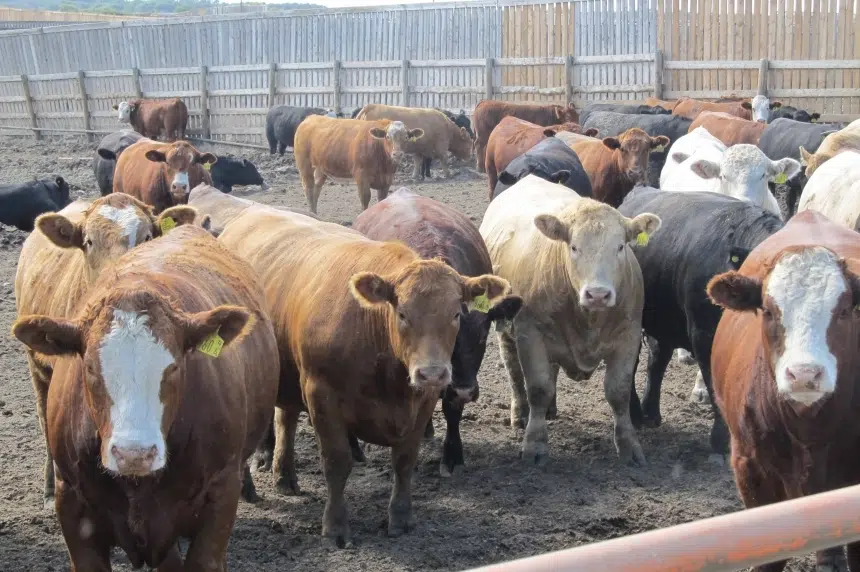Between the grasshoppers, gophers and drought conditions, Saskatchewan ranchers have had their hands full this summer.
Some ranchers are dealing with pastures drying up.
“It’s a real challenging year. Early on, everybody was very optimistic that we had a good start to the year but again, there just was no reserve moisture and so we were just living day by day with the rain that did come,” said Garner Deobald, president of the Saskatchewan Stock Growers Association.
“For many, the challenge has been that it’s a multi-year drought and battling grasshoppers and gophers and now all of these dry conditions here. It’s really put a lot of the ranchers and farmers into a tough position with yields (being) very low on the feed and forage side.”
Deobald said the challenges brought about by the drought include trying to locate feed while navigating transportation costs and making sure that cattle have enough water.
“In the end if they’re not able to find the feed that they need, the answer really is that they just would have to market the cattle a lot sooner,” Deobald said.
“Ween calves earlier and pull them off grass quicker and so it’s a bit of a juggling act I guess.”
Earlier in July, it was announced that the Saskatchewan Crop Insurance Corporation (SCIC) implemented some measures to allow for low-yielding cereal and pulse crops to be converted into feed for livestock.
Deobald said this is a good first step, but he’d like to see more action beginning with an AgriRecovery assessment.
Organizations like the Agricultural Producers Association of Saskatchewan (APAS) and the Saskatchewan Cattlemen’s Association (SCA) have also called for drought assistance measures.
“The agriculture sector in Saskatchewan is diverse, and in these challenging times, it’s important to work together to ensure farmers and ranchers in this province get the support they need when they need it,” read a joint news release from both APAS and SCA.
“Many livestock producers have been facing years of compounding drought, and the need for feed is urgent,” said Keith Day, SCA board chair in the same release.
“As your friends and neighbours, we are asking for any help that farmers and crop producers are able to provide.”
The severity of dry conditions varies across the province but Deobald said that some producers have compared this year’s conditions to 2021 which is when a similar SCIC program was implemented.
“That was more of a province-wide drought and affected a large part of the province and right now, I guess we’re getting into that again here,” Deobald said.
Deobald said he’s worried about some of the hot temperatures forecast for the province.
“Every day that goes by here now, the conditions become worse and this next week looks like (there are) going to be above-average temperatures,” Deobald said.
Deobald said that any extra grain or straw provided by farmers would be incredibly useful as a feed source for livestock.











